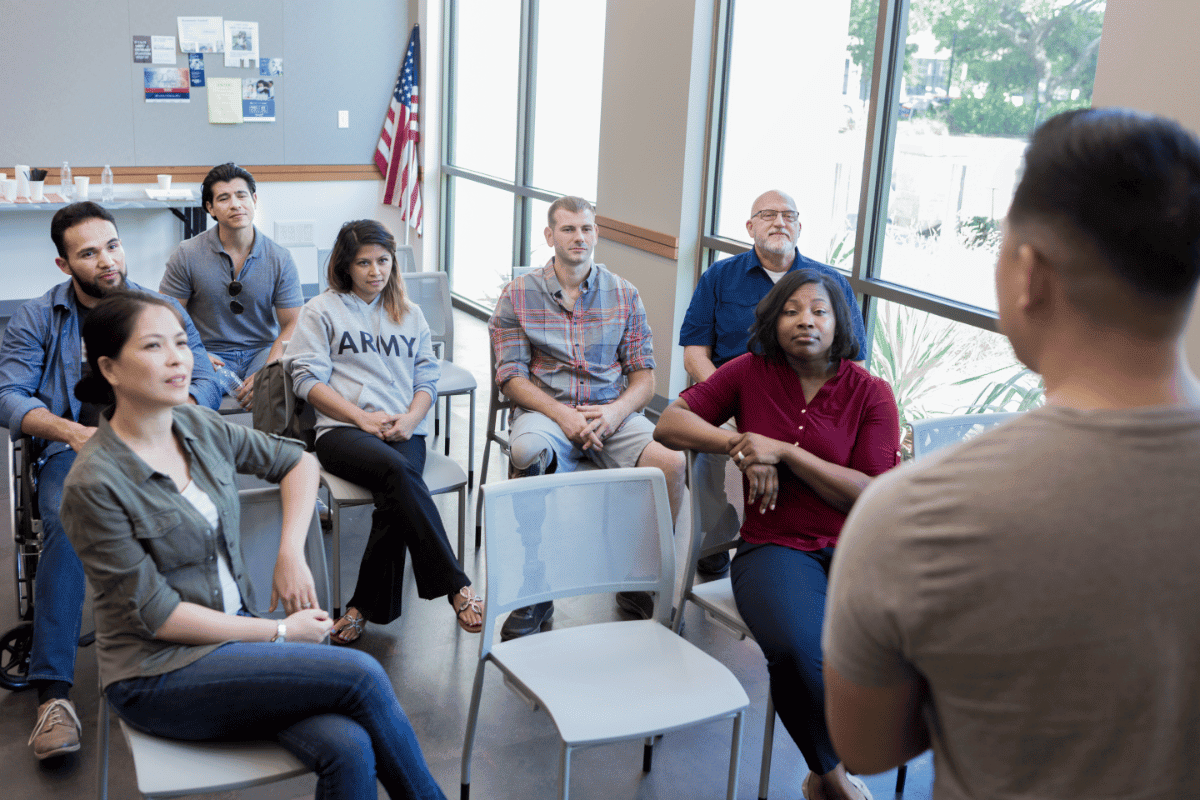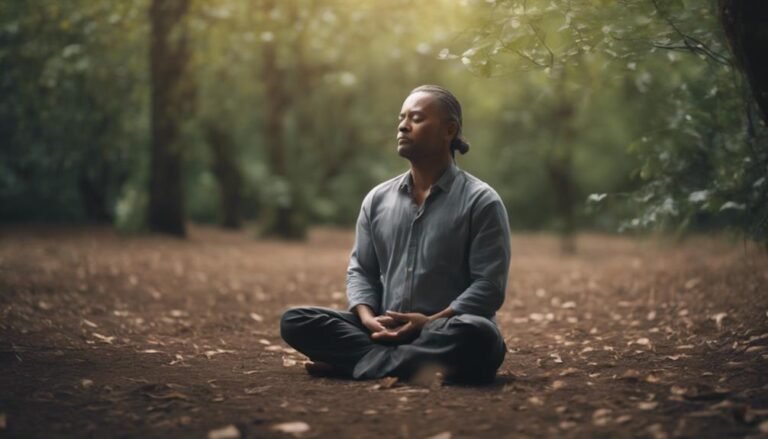Counseling Veterans: Understanding Military Culture
Exploring the complexities of counseling veterans requires a deep understanding of military culture. From the impact of combat trauma to shift challenges post-service, the intricacies of veterans’ experiences demand a nuanced approach.
As a counselor, you must recognize the unique factors influencing veterans’ mental health and well-being. Stay tuned to uncover effective strategies for providing culturally competent care to this deserving population.
Key Takeaways
- Recognize and respect military norms for effective counseling.
- Address combat stressors and trauma recovery in therapy.
- Provide support for transitioning challenges post-service.
- Utilize culturally competent counseling and peer support for veterans’ well-being.
Importance of Military Cultural Competence
Understanding the importance of military cultural competence is crucial for effectively counseling veterans and providing them with the support they need to navigate their unique experiences and challenges. Military norms play a significant role in shaping veterans’ identities, values, and behaviors. These norms encompass a strong sense of duty, discipline, hierarchy, and camaraderie, which may differ from civilian expectations. When working with veterans, recognizing and respecting these military norms can build trust and rapport, fostering a more constructive counseling relationship.
Veteran experiences are diverse and complex, influenced by factors such as combat exposure, deployments, separations from family, and reintegration into civilian life. Veterans may face a range of mental health issues, including post-traumatic stress disorder (PTSD), depression, and substance abuse, stemming from their service-related experiences. By understanding the nuances of veteran experiences, counselors can tailor their approaches to address the unique challenges faced by this population effectively. Your empathy and cultural awareness can make a significant difference in supporting veterans through their journey to healing and adjustment.
Historical Impact on Veterans’ Mental Health
As you start to explore the historical impact on veterans’ mental health, it’s imperative to acknowledge the enduring effects of war trauma and the analysis of combat stressors. Understanding how these factors have shaped the mental well-being of veterans can provide insights into the unique challenges they face upon returning home.
War Trauma Effects
In the domain of veterans’ mental health, the lingering impact of war trauma has woven itself deeply into the fabric of their experiences. For many veterans, the journey of trauma recovery is a complex and challenging path. The scars left by the horrors of war can manifest in various ways, affecting their mental well-being and daily lives.
Acknowledging the depth of these wounds is essential in guiding veterans through their healing journey. It’s important to provide a safe space where veterans feel understood, supported, and empowered to confront their traumas. By offering culturally-aware counseling services tailored to their military experiences, veterans can begin to navigate the difficult terrain of war trauma effects and work towards finding peace within themselves.
Combat Stressors Analysis
Exploring the historical impact of combat stressors on veterans’ mental health reveals a profound understanding of the enduring challenges they face post-service. The intense and prolonged exposure to combat stressors can have lasting effects on mental health, leading to conditions such as PTSD, anxiety, and depression. Veterans often develop coping strategies during their service to manage the stressors they face, but these strategies may not always be sufficient in the long term.
It’s essential to focus on resilience building and mental health support to help veterans navigate the complexities of post-service life. By acknowledging the unique experiences of veterans and providing culturally-sensitive care, counselors can play an essential role in supporting their mental well-being and aiding in their shift to civilian life.
Transition Challenges Post-Service
Surviving life after military service can present a myriad of challenges for veterans, impacting their well-being and sense of purpose. The shift from a structured military life to civilian life can be intimidating, leading to reintegration struggles and the need for effective coping strategies. Many veterans face difficulties finding meaningful employment, establishing new routines, and reconnecting with family and friends. This adjustment period can trigger feelings of isolation, purposelessness, and even identity crisis.
To navigate these challenges successfully, it is important for veterans to be aware of mental health issues that may arise during this change. Seeking mental health awareness and accessing community resources can provide invaluable support. By acknowledging the emotional toll of moving out of the military, veterans can proactively address their well-being and seek assistance when needed. Here is a table highlighting some common challenges faced by veterans post-service and potential coping mechanisms:
| Challenges Faced | Coping Mechanisms | Community Resources |
|---|---|---|
| Employment | Establishing new routines | VA Employment Services |
| Social Isolation | Joining veteran groups | Local support groups |
| Identity Crisis | Seeking counseling | Veteran Affairs centers |
Stigma Surrounding Mental Health in the Military
Handling the complexities of mental health in the military setting can involve confronting the stigma surrounding seeking help for psychological well-being. Within military culture, there exists a significant stigma attached to mental health issues, often seen as a sign of weakness or incompetence. Overcoming this stigma is essential in ensuring that service members receive the necessary support and care for their mental well-being.
To address this sensitive issue effectively, it’s vital to approach it with empathy, understanding, and cultural awareness. Here are three key points to take into account:
- Education and Awareness: Increasing education and awareness about mental health conditions within the military can help reduce stigma and encourage individuals to seek help without fear of judgment.
- Promoting Confidentiality: Ensuring confidentiality and privacy in mental health services can help alleviate concerns about potential repercussions or negative perceptions within the military community.
- Encouraging Peer Support: Cultivating a culture of peer support and open communication can create a safe space for service members to discuss mental health challenges and seek assistance without feeling isolated or stigmatized.
Combat Trauma and PTSD
As a counselor, you may encounter veterans struggling with combat trauma and PTSD, facing symptoms like flashbacks, nightmares, and hypervigilance.
It’s important to be aware of the available treatment options, such as therapy and medication, that can greatly assist in managing these challenges.
PTSD Symptoms Overview
Understanding the symptoms of PTSD resulting from combat trauma is imperative in providing effective counseling to veterans. For many veterans, trauma triggers can evoke intense emotional and physical reactions, making everyday life challenging. It’s essential to recognize these signs to offer appropriate support.
Here are some key points to bear in mind:
- Flashbacks and nightmares can be distressing and disruptive.
- Hypervigilance and exaggerated startle response may lead to heightened anxiety.
- Avoidance behaviors, such as steering clear of places or activities that remind them of the trauma, can isolate veterans.
Treatment Options Available
When considering treatment options for combat trauma and PTSD in veterans, it’s necessary to prioritize personalized care tailored to each individual’s unique experiences and needs.
Alternative therapies like art or equine therapy can provide a different approach to healing, allowing veterans to express themselves in non-verbal ways.
Group counseling offers a supportive environment where veterans can connect with others who understand their struggles.
Medication management plays a critical role in managing symptoms, but it should be complemented with holistic care that addresses the mind, body, and spirit.
Unique Aspects of Military Social Support
Exploring the complexities of military social support can be a unique and challenging experience for veterans moving back to civilian life. Moving from the structured environment of the military to the more individualistic civilian world can pose difficulties in accessing and adapting to social support systems.
- Peer Camaraderie: The strong bonds formed with fellow service members create a sense of belonging and understanding that may be challenging to replicate in civilian life.
- Community Bonds: Military communities often provide a tight-knit network of support that extends beyond just fellow service members, encompassing families and local communities.
- Emotional Resilience: Military culture often emphasizes emotional resilience and self-reliance, making it for veterans to find support systems that respect these values while also offering avenues for emotional expression and processing.
Exploring these unique aspects of military social support requires a deep understanding of the veteran’s experiences and an empathetic approach to help them move effectively into civilian social networks.
Substance Abuse and Veterans
You understand the unique challenges veterans face, and substance abuse can be one of them. Recognizing the risk factors for substance abuse and knowing the treatment options available is vital in supporting veterans through their recovery journey.
Your empathy and understanding can make a significant difference in helping veterans struggling with substance abuse.
Risk Factors for Substance Abuse
Understanding the unique challenges faced by veterans can provide valuable insight into the risk factors for substance abuse among this population. Veterans may experience various factors that increase their vulnerability to substance abuse:
- Deployment Exposure: Witnessing traumatic events during service can lead to mental health issues and substance use as a coping mechanism.
- Shift Stress: Reintegrating into civilian life can be challenging, leading to feelings of isolation and purposelessness.
- Physical Injuries: Chronic pain from injuries sustained during service may result in the misuse of pain medications.
Treatment Options Available
Witnessing the challenges veterans face with substance abuse, it’s essential to explore the various treatment options available to support their recovery journey and well-being.
For veterans struggling with substance abuse, there are several effective treatment approaches to ponder. Alternative therapies such as art or music therapy can provide a creative outlet for self-expression and healing. Group counseling offers veterans a supportive environment where they can share their experiences and learn from others facing similar struggles. Medication management may be necessary for some veterans to address underlying mental health issues contributing to substance abuse. Additionally, holistic approaches that focus on the mind, body, and spirit can promote overall well-being and aid in the recovery process.
It’s crucial to contemplate these diverse treatment options to best support veterans on their path to healing.
Family Dynamics and Reintegration
Exploring the complexities of family dynamics and reintegration after military service can be a challenging and emotional journey for both veterans and their loved ones. The shift from military to civilian life can bring about significant adjustments, impacting relationships and daily routines. Here are some key points to ponder:
- Family Dynamics: Understanding the changes in roles and responsibilities within the family unit is essential. Veterans may struggle with redefining their identity outside the military, while family members might need to adapt to changes in communication styles and emotional expression.
- Reintegration Challenges: Reconnecting with civilian life can be overwhelming. Veterans may experience feelings of isolation, frustration, or even guilt. It’s crucial for both veterans and their families to acknowledge these challenges openly and seek support when needed.
- Support Systems and Communication Strategies: Building a strong support network is critical for successful reintegration. Encouraging open and honest communication, active listening, and patience can help navigate the ups and downs of this shift period.
Exploring the complexities of family dynamics and reintegration requires patience, understanding, and a willingness to adapt to new circumstances.
For many, symbols of service, like Coast Guard coins linked here, offer a meaningful way to honor their commitment and stay connected to their military roots.
Benefits of Peer Support Programs
Moving from military to civilian life can be made easier through the valuable support provided by peer support programs. Peer mentorship and group therapy offer veterans a sense of camaraderie and understanding that’s unique to their shared experiences. In these programs, veterans can connect with others who’ve gone through similar challenges, creating a safe space for sharing thoughts and emotions without fear of judgment. The bond formed through peer support can be a powerful tool in promoting adaptation and significant readjustment to civilian life.
Peer support programs provide veterans with a platform to discuss common struggles, share coping mechanisms, and offer mutual encouragement. The peer mentors in these programs, often veterans themselves, can provide insights and guidance that resonate on a deeper level due to their firsthand understanding of military life. Through group therapy sessions, veterans can explore their feelings in a supportive environment, fostering personal growth and emotional resilience. Overall, peer support programs play an important role in helping veterans navigate the shift from military to civilian life with a sense of community and understanding.
Culturally Competent Counseling Approaches
Understanding the unique cultural background and experiences of veterans is fundamental in tailoring effective counseling approaches to support their mental health and well-being. When working with veterans, it’s essential to implement culturally competent counseling approaches that acknowledge their military experiences and the impact it has on their mental health. Here are some key strategies to take into account:
- Trauma Informed Care: Recognize the impact of trauma on veterans and integrate trauma-informed approaches into counseling sessions.
- Veteran-Specific Interventions: Utilize interventions specifically tailored to address the needs and challenges commonly faced by veterans.
- Military Cultural Awareness: Develop a deep understanding of military culture, traditions, and values to establish a strong therapeutic rapport with veterans.
Conclusion
As you continue to learn about counseling veterans and understanding military culture, remember that your knowledge and empathy can make a world of difference. By taking the time to truly understand the unique challenges and experiences of veterans, you can provide them with the support and care they deserve.
So, keep diving into this world of military culture with an open heart and mind – the impact you can make is as vast as the open sea.







